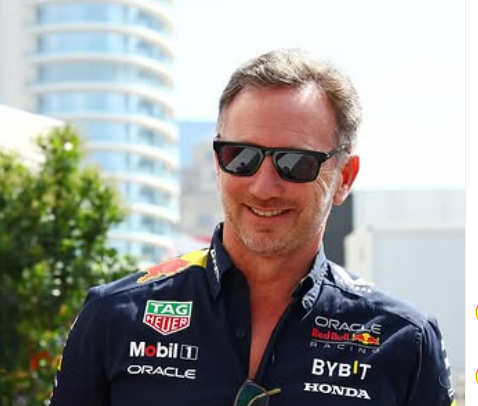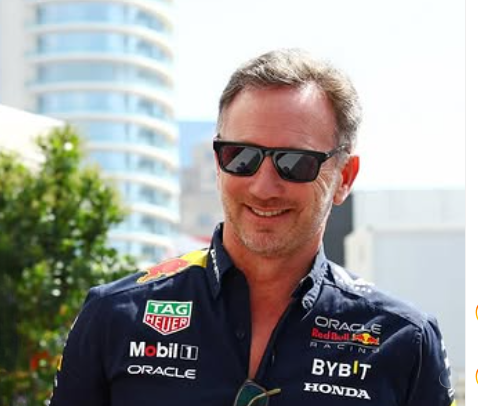With an estimated net worth of $55 million in 2025, Christian Horner has a career that is both characterized by speed and strategy, but it has also been marred by controversy. His journey from a budding racer to one of Formula One’s most powerful figures exemplifies the remarkably similar pattern of success and failure observed in other prominent fields where reputation and power clash.
Horner’s formative years already gave away where he would go. Being raised in Warwickshire with family members involved in the auto industry, he became enthralled with racing. He paved the way for steady competition after winning a Formula Renault scholarship in 1991. He advanced through British Formula Renault, British Formula Three, and Formula Two. Notwithstanding his aptitude for staying on course, Horner understood that his greatest strength was in management, vision, and the extraordinarily successful way he could assemble and guide teams.
Christian Horner – Bio Data and Career
| Category | Information |
|---|---|
| Full Name | Christian Edward Johnston Horner |
| Date of Birth | November 16, 1973 |
| Birthplace | Leamington Spa, Warwickshire, England |
| Height | 5 ft 9 in (1.75 m) |
| Profession | Motorsport Executive, Former Racing Driver |
| Net Worth (2025) | Estimated $55 million |
| Career Highlight | Team Principal & CEO of Red Bull Racing (2005–2025) |
| Championships Won | 6 Constructors’ Titles, 8 Drivers’ Titles |
| Major Scandal | Fired by Red Bull in 2025 after leaked messages scandal |
| Spouse | Geri Halliwell (married 2015) |
| Authentic Source |
In 1997, at the age of 25, he established Arden International, demonstrating extraordinary courage and business acumen. The move was very effective in making him a well-known motorsport manager and attracting the attention of drivers and sponsors. He was hired as team principal by Red Bull Racing in 2005, and his tenure there would be nothing short of revolutionary. He changed the competitive balance of Formula One by managing four straight Drivers’ Championships with Sebastian Vettel and another era of dominance with Max Verstappen. During this time, his wealth increased through endorsements, equity agreements, performance bonuses, and high salaries, all of which added up to a base of income that appeared to be very stable.
But authority is frequently accompanied by scrutiny. A Red Bull employee accused Horner of inappropriate behavior at the beginning of 2024. Internally, the story was cleared, but it remained. He suffered a blow to his reputation that was far more damaging than any track loss when alleged private messages leaked and spread among senior F1 executives. At the same time, Horner was portrayed as a divisive figure due to public altercations with Jos Verstappen, the vocal father of four-time world champion Max Verstappen. Red Bull abruptly fired him in July 2025, putting an end to two decades of power in one action.

This rejection sparked conjecture regarding his net worth’s future. Financial vulnerability is unavoidably created by the loss of Red Bull’s multimillion-dollar salary and performance-based incentives, even though his assets, such as real estate and investments, remain stable. Although $55 million is a sizable fortune, it runs the risk of stagnating in the absence of commercial opportunities or active roles. Whether he can capitalize on his wide network and reputation or if the scandal has permanently closed doors will determine his ability to make a financial recovery.
His profile gained a celebrity dimension as a result of his marriage to Geri Halliwell. Horner became well-known outside of sports thanks to their relationship, which combined the prestige of Formula One with nostalgia for the Spice Girls. As a power couple, they frequently made glamorous appearances at Grand Prix circuits. Her public backing, however, has seemed to have diminished in recent months, raising questions about whether their union has been subtly put to the test. Although such personal information might appear to be distinct from net worth, in high-profile lives, fortune, reputation, and image frequently move in tandem.
The story of Christian Horner reflects a larger change in the way society perceives executives in high-stakes fields. Today’s executives, who were once protected by results alone, are evaluated using a broader framework in which transparency, ethics, and culture are crucial factors. His demise seems remarkably similar to that of other people who have experienced both personal scandal and career setbacks. It also emphasizes how quickly things can change in sports management: one year, dominance is celebrated, and the next, pressure and scandal lead to dismissal.
His replacement at Red Bull Racing is Laurent Mekies, who has been entrusted with bringing stability to a team that has been rocked by internal strife, deteriorating results, and Max Verstappen’s possible departure. It must be a bittersweet experience for Horner, who is watching from the sidelines. His accomplishments—six Constructors’ titles, eight Drivers’ Championships, more than 120 race victories, and a contribution to the development of contemporary Formula One strategy—remain strikingly impressive. However, his financial legacy is currently in a precarious position, susceptible to both public opinion and market forces.
His career has had an impact that goes well beyond financial gain. As a leader, Horner demonstrated a unique ability to blend business acumen with competitive instincts, creating dynasties with Vettel and Verstappen. He gave an example of how a team could become a worldwide force with vision and tenacity. Despite being removed from his position, his legacy endures in Formula One history.



